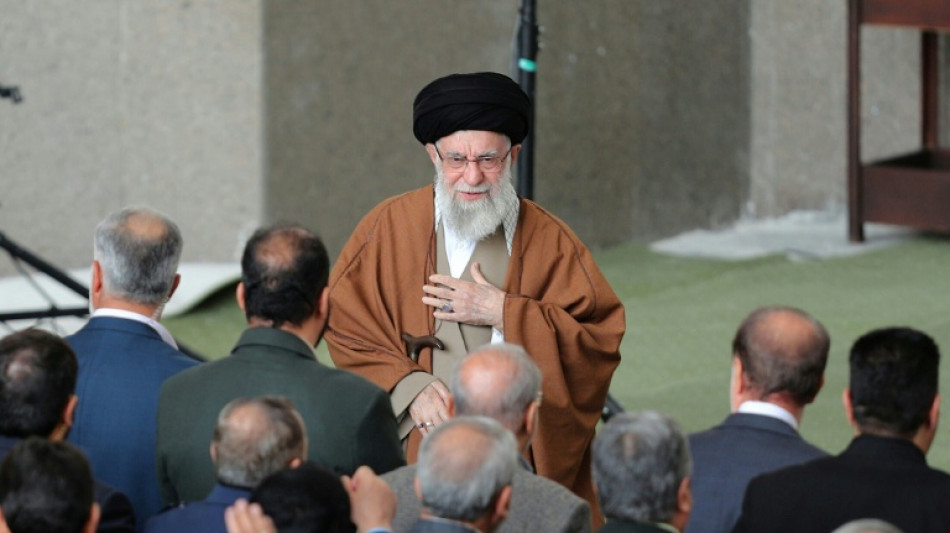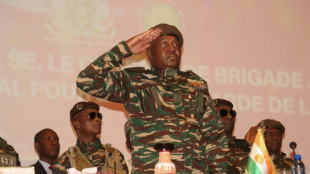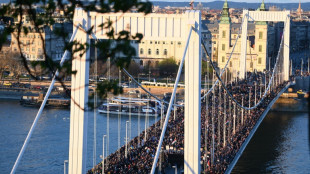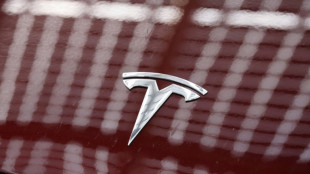

Khamenei warns of 'strong' response if Iran attacked
Iran's supreme leader Ayatollah Ali Khamenei warned Monday of a forceful retaliation if the United States or its allies bomb the Islamic republic, following a threat by President Donald Trump.
"They threaten to do mischief," Khamenei said of Trump's latest threat, during a speech on Eid al-Fitr, the holiday marking the end of the Muslim fasting month of Ramadan.
"If it is carried out, they will definitely receive a strong counterattack."
In an interview on Saturday, Trump said "there will be bombing" if Iran does not agree to a deal to curb its nuclear programme.
"If they don't make a deal, there will be bombing," he said, according to NBC News, which said he also threatened to punish Iran with what he called "secondary tariffs".
It was not clear whether Trump was threatening bombing by US planes alone or perhaps in an operation coordinated with another country, possibly Iran's nemesis Israel.
Iranian foreign ministry spokesman Esmaeil Baqaei, in a post on X, said that "an open threat of bombing by a head of state against Iran is a shocking affront to the very essence of international peace and security."
Baqaei warned of unspecified "consequences" should the United State choose a path of "violence".
A statement on Monday also said the foreign ministry summoned the charge d'affaires of the Swiss embassy, which represents US interests in Iran, "following the threats by the US president".
Since taking office in January, Trump has reinstated his "maximum pressure" policy, which in his first term saw the United States withdraw from a landmark agreement on Iran's nuclear programme and reimpose biting sanctions on Tehran.
Western countries including the United States have long accused Iran of pursuing a nuclear weapon, which Tehran has denied, insisting its enrichment activities were solely for peaceful purposes.
- 'Indirect' channel -
The 2015 nuclear deal, sealed between Tehran and world powers, required Iran to limit its nuclear ambitions in exchange for sanctions relief.
On March 7, Trump said he had written to Khamenei to call for nuclear negotiations and warn of possible military action if Tehran refused.
The letter was delivered to Tehran on March 12 by UAE presidential adviser Anwar Gargash, Iranian news agency Fars reported at the time.
On Thursday, Iranian Foreign Minister Abbas Araghchi said the country had delivered a response via intermediary Oman, without delineating its content.
Araghchi said Iran would not engage in direct talks "under maximum pressure and the threat of military action".
In his remarks, however, the minister left open the door for "indirect negotiations".
President Masoud Pezeshkian on Sunday said that Khamenei, who as supreme leader has the final say in major state policies, had permitted indirect talks.
Oman has served as an intermediary in the past, in the absence of US-Iranian diplomatic relations severed after the 1979 Islamic revolution.
Beyond its nuclear programme, Iran is also accused by the West of using proxy forces to expand its influence in the region, a charge Tehran rejects.
Iran leads the so-called "axis of resistance" against Israel, which includes Palestinian movement Hamas, Hezbollah in Lebanon and other armed group widely proscribed as "terrorist" by Western countries.
Iran does not recognise Israel, its arch enemy and the United States' main ally in the region, and frequently calls for attacks against it.
"There is only one proxy force in this region, and that is the corrupt usurper Zionist regime," Khamenei said, calling for Israel to be "eradicated".
P.Renard--JdB



